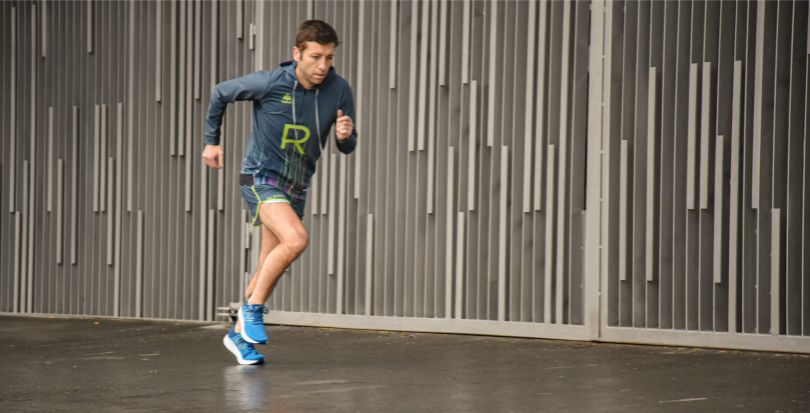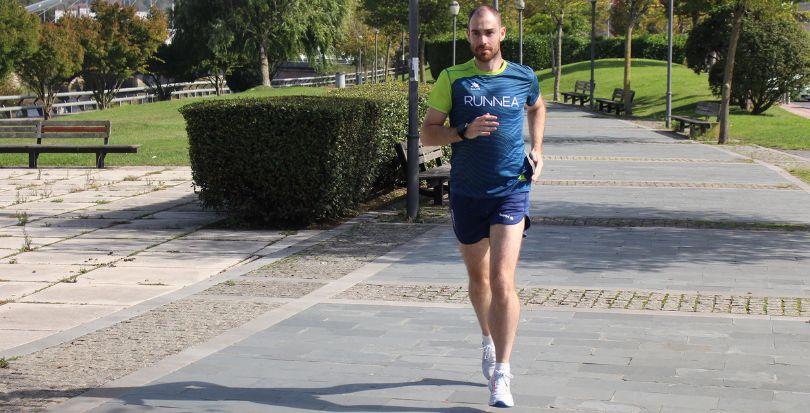Looking for the positive side of things or being the kind of person who always sees the glass half full is always an interesting attitude to face any episode in this life. Just as in the personal sphere, and although running brings many good moments, we must be aware that not everything is rosy when it comes to training and, above all, when it comes to participating in any type of competition.

From the first moment we lace up our running shoes and step onto the starting line, we must be aware that things do not always go as expected. Neither the best training plan nor the best physical shape ever achieved guarantee 100% that the race in which we participate will meet the expectations placed on it.
It is true that a training process adapted to the individual characteristics of the runner and to the peculiarities of the competition, as well as a correct race strategy increase the percentage of success in the race.
But what happens when, despite having fulfilled all the conditions prior to the race, we have a bad race? Knowing how to manage emotions and thoughts will be key, since it is likely that in our sporting life there will be as many joys as disappointments, even more of the latter.
Although the most beautiful thing is to "win", we must know and learn how to "lose".
At RUNNEA we are always on the lookout for anything to do with running and today we thought we would help you with 5 tips to lift your spirits and recover after a bad race.
5 tips to lift your spirits and recover from a bad run

Valuing the effort
Too often we evaluate success or failure based on a certain time. Failure to meet time expectations in a competition should not always be associated with a bad race. The mere fact of completing a certain distance already has a great merit, even if it is only 5 kilometers.
Think that there are many citizens in the world that would not even be able to run for 5 minutes in a row and you present a superior capacity to cover very important distances.
The longer the distance, the more valor we should give to our effort. The simple fact of finishing a half marathon or marathon, for example, is not within the reach of many people, so we should feel lucky and fortunate. What we do is for supermen and superwomen. Even if you have not been able to finish for whatever circumstance, showing the predisposition and having the proper physical preparation to face this type of race is admirable.
Opportunity for healthy revenge
It's not the end of the world to have experienced a less than satisfactory race. The good thing about running is that the annual calendar covers a multitude of competitions, so if you have failed in any competition, you will have the opportunity to look for another of the same or similar distance.
Analyze what has failed will be essential to try not to happen again or to increase the chances of success.
This opportunity for revenge must be faced from a healthy perspective, which means that we must prioritize recovery and assess how we can adapt the futura competition to our training plan. It is possible that in one or two weeks we will be ready to compete again after a bad 5k or 10k, but in the case of the 21k, especially the 42k, the rest period between one and another competition must be ample. Hurries are never a good ally!
Context analysis
Knowing how to analyze and reflect on the factors that may have conditioned the competition is something that should not be missing after a competition. It may be that although we consider that a race has gone badly, what has really happened is that there have been other factors that have conditioned our performance.

It is a proven fact that on very hot or windy days, performance is diminished. Another common thing is to find a circuit or course much more complex than we had in mind, either by a greater positive slope, by the presence of uncomfortable turns or an uncomfortable surface to run. Therefore, a bad race does not always happen because of a bad performance, but because of a bad interpretation and management of external factors.
Adapting brand expectations to the conditions and characteristics of the competition will help us to make a much more positive reading of it.
Learning
All experiences have room for positive learning, even the crudest ones. The fact of being able to manage and finish a race in which the sensations do not go well is still a greater effort than if things went smoothly. This greater capacity for suffering in competition helps to forge a much stronger mind, which will help you in later races.
They say that experience is a degree, and in running, it is of great importance. Each situation in competition is different, which leads us to live a multitude of experiences while running with the bib on our chest. This collection of experiences forges a much more complete athlete with the ability to manage the different situations in the race, both positive and negative.
Think that something that has already gone wrong is more likely to vaya better in the next race.
Lean on other people
Before we get into a loop of negative thoughts and hit rock bottom, we must learn to lean on different figures such as our coach, family, partner or friends. The coach is the voice of experience and will always be able to take a positive reading from any unsatisfactory experience. Knowing how to listen to their opinion to lift your spirits and regain motivation is going to be super interesting.
Whether you have a coach or not, your close ones such as your family, partner or colleagues will always have nice words to appreciate all the effort you make, both in daily training and in competition. Lean on their encouragement, advice and compliments to get back to the person you were before the bad race.
Sometimes you have to take away some of your own modesty and raise your self-esteem.
A bad race is just a bad race

Although we are aware that a bad run after a long training process can be frustrating, it is important to think that it is not the end of the road, but just a bump in the road. Our body and mind will know how to take advantage of all the positive things that the process brings, being able to replicate this physical and psychological learning in the next competition you have your eye on. Let's go for it!
Read more news about: Running Training





























